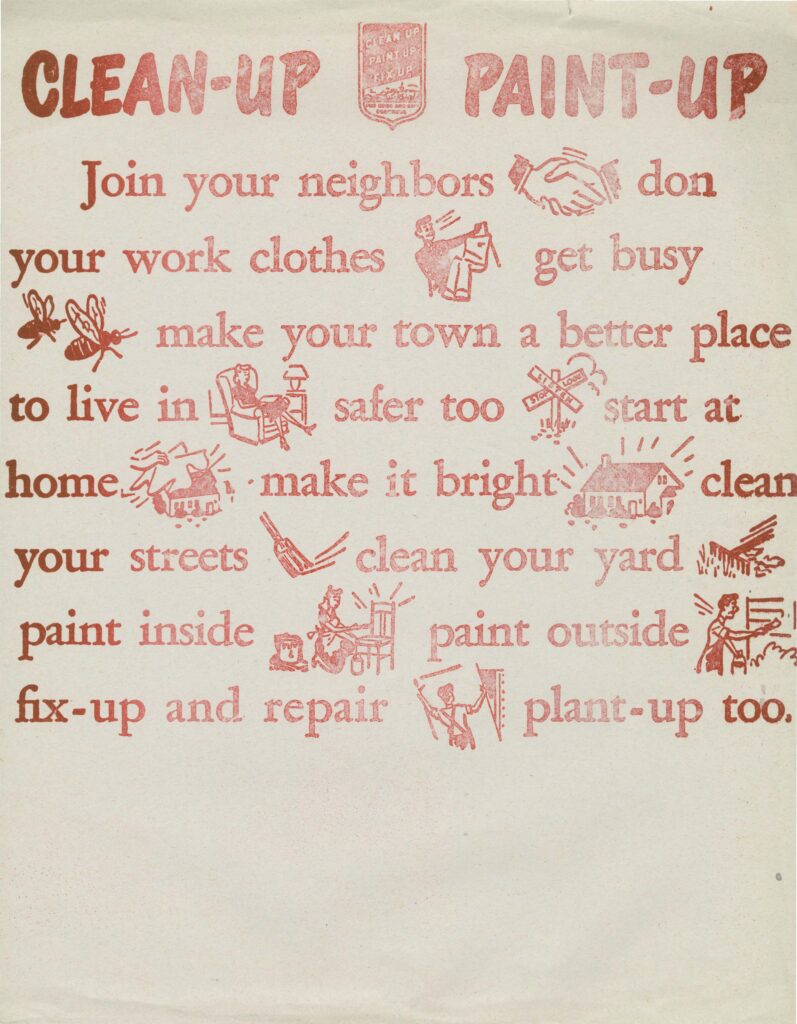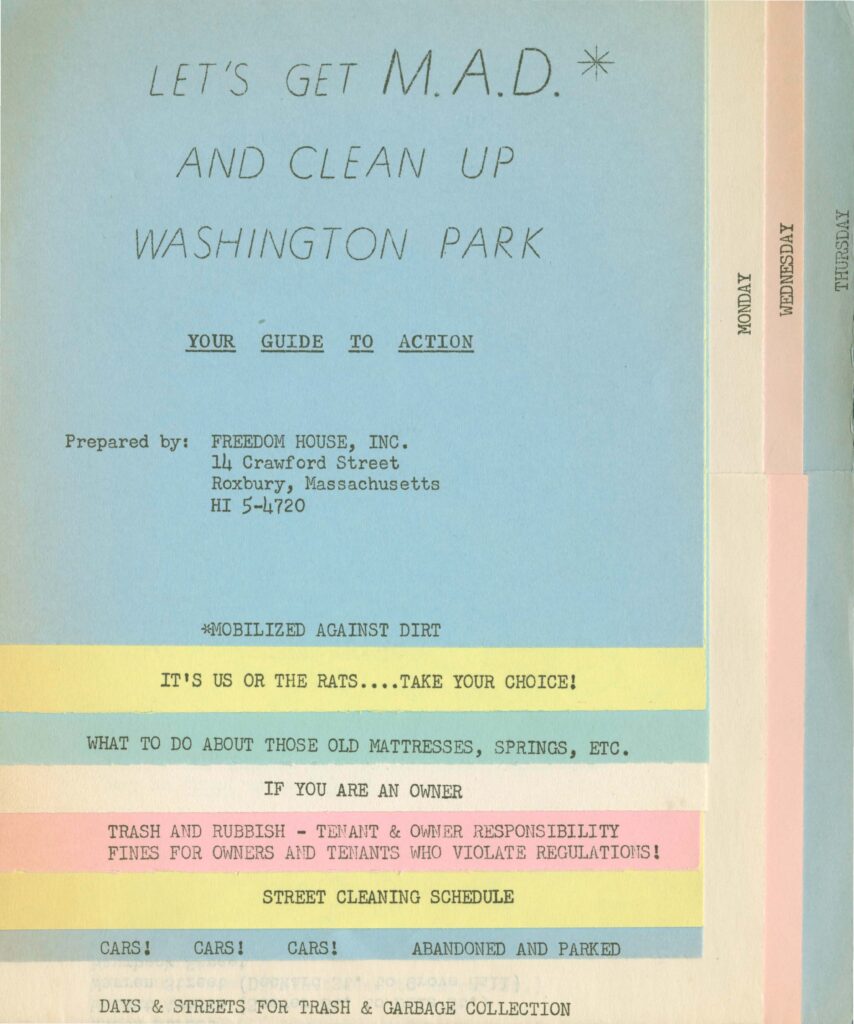On March 18th, the Norman B. Leventhal Map & Education Center in the Boston Public Library (BPL) debuted their exhibit “More or Less in Common: Environment and Justice in the Human Landscape.” The exhibit examines how social justice and injustice are confronted in the study of the “human landscape” and how we can use questions of social justice to help us build healthier and better environments for the future.
Northeastern’s contributions to the exhibit come from our Freedom House, Inc., records and in particular, their records on urban renewal and neighborhood-led clean-up campaigns. The exhibit features two fliers calling Roxbury neighbors to action in various clean-up and maintenance projects. Neighborhood improvement programs designed to protect Upper Roxbury from urban blight began in 1949 when Freedom House joined with community members to organize neighborhood clean-up projects and playground construction.
Freedom House worked closely with the city to improve the services provided to Roxbury. At the same time, Boston was beginning a formal urban renewal campaign that did not initially include Roxbury. A telegram from Freedom House founders Muriel and Otto Snowden to Mayor John F. Collins resulted in the inclusion of the Washington Park Urban Renewal Project in Boston’s campaign. By 1963, Freedom House had entered into formal contracts with the Boston Redevelopment Authority (BRA) and the Action Boston Community Development to serve as a liaison between the planners and technicians and the residents of Washington Park. This relationship lasted until the BRA withdrew from Roxbury in the late 1960s, leaving much of its work undone.
The Leventhal Center’s exhibit takes our Freedom House records, and many other institutions’ records, and composes them into a complicated vision of how human landscapes were confronted and contended with in the past and how they can be reimagined for the future.
Visit the exhibit in person at the BPL’s historic McKim Building during the BPL’s visiting hours, which can be found here.
Or you can view the digital exhibit, along with lesson plans and resources for further study, here.
Find out more about the Freedom House records, the Snowdens, and Roxbury neighborhood history here.

